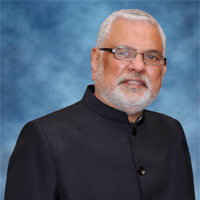Editorial August 2023
| Dear Readers,
Speaking about Indian Americans succeeding in the US is a really energizing and proud experience. Additionally, the fact that this Indian-American is seeking the nation’s highest position marks a particularly watershed time. I am, in fact, referring to Vivek Ramaswamy. Due to the fact that he is running on the Republican ticket, it gives me double joy. We previously discussed the presidential campaigns of Nikky Haley and Vivek Ramasway, two Indian-Americans. In that issue, we went into great length about Nikky Haley since she was polling third in the Republican primary. In July 2023, Vivek Ramasway is polling third with 9% of the vote, not too far behind Governor De Santis. We have a thorough profile of Vivek Ramasway in this issue. I had the good fortune to have a one-on-one discussion with Vivek Ramasway, and I was really taken with his candor on such crucial issues as foreign policy, immigration, religious discrimination, practicing Hinduism in the US, and India-US relations. In this issue, we have both the interview and a thorough article. I spoke with several Indian-Americans while researching the piece about the Republican presidential candidates. One important question came up, and that was Why Indian-Americans should vote for a Republican candidate or party.Fiscal conservatism (lower taxes), limited government, school choice and education reform, pro-business policies, individual liberties, family values, and immigration reform are the Republican Party’s top agenda topics. If you examine each of these topics closely, you will see that the majority of Indian Americans hold similar views. Let’s look more closely at each of these issues and compare them with Indian-American beliefs. School choice and education reform Republicans frequently support localized control of education and school choice, which is crucial to Indian-American families that value education and desire more say in their children’s education. Indians have greater levels of education and higher income. In the US, 79% of Indian-American have graduated from college, compared to 34% nationally, and this correlates to higher incomes. According to the most recent US Census data, the average household income of Indian-American is $123,700, over twice the national average of $63,922. Lower taxes: Indian-Americans are well renowned for having an entrepreneurial spirit and frequently work in startups and small enterprises. Small firms may benefit from lower taxes since they may have more resources to invest in, grow, and generate jobs. The majority of Indian Americans think that tax reductions promote investment and economic expansion. When people and businesses have more money available, they can establish new firms, purchase goods and services, and make economic investments. People should be allowed to keep a larger share of their wages, according to supporters of lower taxes. The majority of Indian-American ideas are extremely similar to theirs in that they both hold the view that people can make better financial decisions than the government. This has been one of the top issues promoted by the Republican Party since its inception. Family and social values: Due to their frequent social conservatism in upbringing, Indian-Americans are more likely to marry and stay married, raise their kids in more orderly ways, insist on taking personal responsibility, and want to live in a socially conservative environment, which includes supporting laws against drugs and homosexuality, among other things. The socially conservative ideals that have long been a feature of the Republican Party platform may be more in line with the values of Indian-Americans. These could include a focus on family values, the freedom of religion, or opposition to laws like the one legalizing abortion. A PEW survey found that 40% of Indian-Americans think abortion should not be legal. Limited Government: Reduced government frequently translates into fewer taxes and less regulation, which can foster a climate that is more conducive to business. Indian-Americans may have more opportunity to start their own businesses as a result, which will make it easier for them to do so. Furthermore, minimal government often interferes less with people’s lifestyles and personal decisions. Indian-Americans, like all citizens, value the ability to direct their own lives without undue interference from the government. Immigration Reforms: The merit-based immigration system that gives priority to applicants with the best talents, education, and work experience is something the Republican Party has frequently argued for. Indian Americans, who frequently possess high levels of education and skill, stand to gain significantly from this strategy since they may have better opportunities to be approved for visas or green cards under such a system. Republicans have stated their support for raising the number of employment-based visas, which may benefit Indian professionals looking to work in the US. Republican revisions aiming at expanding or streamlining this program could be helpful for Indian professionals, particularly those in industries like technology and medicine who have benefited significantly from H-1B visas. The Republican Party generally supports measures that promote economic investment and growth. Under such rules, Indian Americans who are company owners or investors may find favorable conditions to launch their enterprises or make investments in the United States. Let me be very clear. I’m not referring to supporting former President Trump. Despite the fact that he is polling quite well, many Republicans, including me, are not supporting him in the primary. I urge every Indian-American to look at each candidate from local government to federal government with an open mind and, rather than voting along party lines, vote for eligible candidates, including one of the four Indian-Americans running for president.
Until then, be safe and happy! Raj Shah |




























